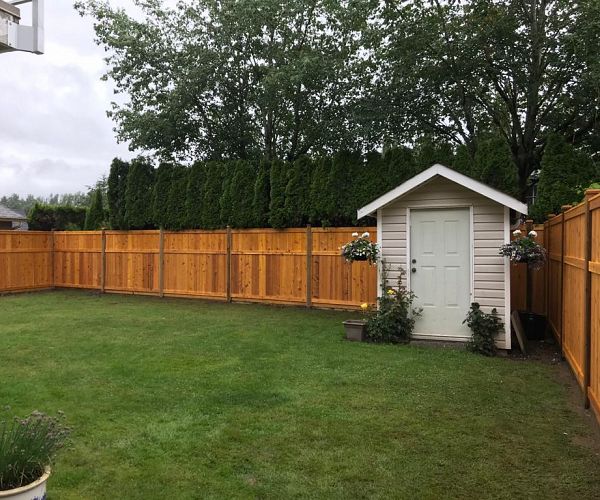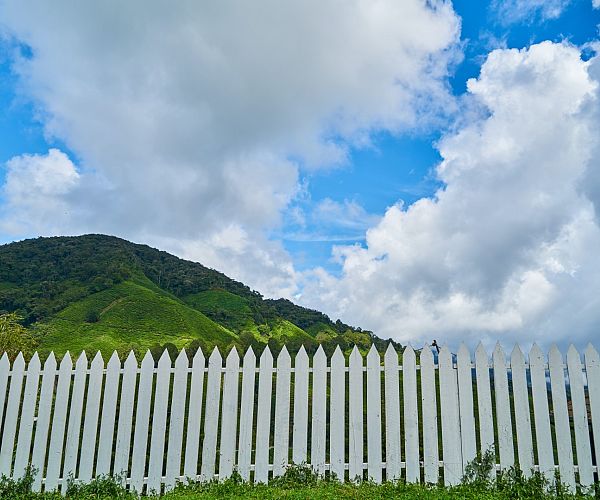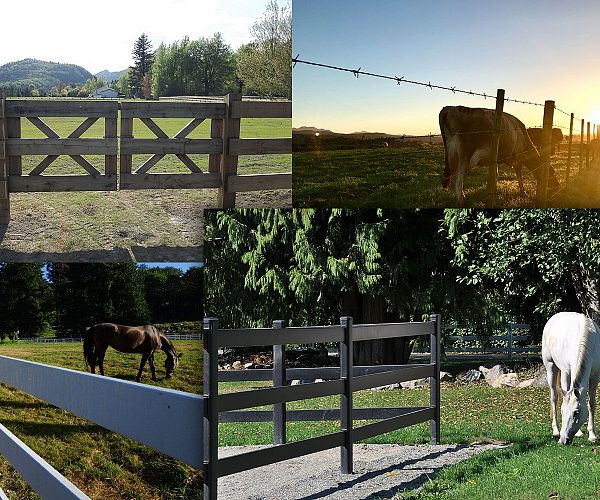How to maintain your fence
Fences are some of the most useful pieces of structure in a house. They don’t just protect your home, but also provide a sense of...

Whether you’re new to farming or you’re already an experienced hand, it’s paramount to build and maintain the proper fence. Proper fences act as insurance for your livestock or yield. If farming is your career, you need to protect your investment. The first step is understanding the different types of fences and their uses. Determining what fence best fits your farm’s needs will give you a strong foundation to progress from.
Now, this is can be a little obvious. Maybe you have livestock you want to keep in or wildlife to keep out. Perhaps you have a garden that needs protecting. Agricultural land to secure. There are a variety of reasons to require a farm fence — be sure to determine your needs before committing to a certain type.

Keep in mind that if you have livestock, there are different fences for certain animals. Large animals might test your fence so it has to be durable enough to withstand the pressure or the livestock needs to be redirected away.
Smaller animals will require different fencing as they cannot test the fence as much as larger animals. One thing to keep in mind is that smaller animals, such as goats, will require smaller openings, when using wired fencing, so that they cannot fit their heads through.
Horses require some specifics to give them a great living space. Check out this easy guide to horse fencing.
While there are a wide array of fence types, styles, and designs, there are a couple major features to look for in your fence. Do you want it to be permanent? Is it for a temporary division of land or livestock separation? What are you trying to protect or enclose? The answers to these questions will narrow your choices down and give you more of an idea of what your farm needs.
.jpg)
Before choosing your wire, determine the type of post you will be putting in the ground. Wood fence posts can come in various sizes and materials, like cedar. There are also plenty of different coatings you can choose from before purchasing your posts. Woodguard is a great way to protect your wood fence from the elements.
.jpg)
Wooden fences require a good amount of work to install and they’re more permanent. Metal T-posts and step-in posts, usually made out of fibreglass or polypropylene, are quick and easy options for temporary fencing.
They require minimal effort to install and are inexpensive. Metal T-posts are great as a short term, cheap fencing option. Add the proper wire and these fences can become quite durable. Step-in posts are fantastic for dividing pastures — they are very quick to install and remove, cheap, and effective fencing. Keep in mind that animals that want to test the fence will likely win.
Equally as important as the fence post, the fence wire encloses the land. Field fences are perfect for enclosing a space, keeping livestock in, and deterring wildlife. There can be horizontal strands of wire connecting the posts or a grid-like system.
Some common horizontal wire fences are barbed wire and electric wire. These are fantastic at deterring livestock from testing the fence and wildlife from trying to break in. Headstrong animals will still be able to go through the wires. These are easy to maintain, but only act as a deterrent and not a durable barrier.

Woven and welded wires are great for the field fence style and have horizontal and vertical wires. These are more durable field fences than the strand fences. Woven wire is very durable and is great for keeping livestock enclosed. It’s easier to maintain and cheaper to fix than welded wire.
Welded wire and chicken wire work really well for smaller spaces like gardens and chicken runs. Keep in mind the size of the livestock you have enclosed in the grid-like fence. You want the spacing of the holes to be smaller than the head of the livestock to avoid any mishaps if they get too curious.
A common style of wood fence is a split-rail fence, which is a fence with wood posts and wooden rails connecting the posts. These types of fences also come with vinyl options, which are more durable and require less maintenance. Be sure to know the benefits of vinyl fencing.

These are great for separating boundary lines or dividing your land. These are quite durable and are great at deterring wildlife from wandering onto your land. Livestock will stay within a wood or vinyl fence, just be sure to use proper height requirements for your livestock.
The material you choose for your fence will determine how long it can withstand the elements. Be sure to understand what material is the most durable and which one is right for you.
Regardless of the type of fence you choose to build for your farm, there will be maintenance each season. Be sure to stay on top of your fencing because it’s acting as insurance for your livestock. Your livestock and agricultural land is your farm’s investment — the fence protects, encloses, and keeps your investment from harm.

For more information or any inquiries about farm fencing in Chilliwack, Abbotsford, Langley, or elsewhere in the Fraser Valley, contact A & G fencing here.

Fences are some of the most useful pieces of structure in a house. They don’t just protect your home, but also provide a sense of...

With spring approaching, it’s time to make sure that your fence is in tip-top shape. Giving your fence a quick inspection will allow it to...

Ensuring you have a properly fenced yard is paramount, particularly when you have animals and agriculture to protect. The last thing you want is...

When looking into installing a new fence on your property, there are many options to choose from. Although cost, aesthetics, and purpose are all...
Download our comprehensive eBook to find exactly what you're looking for.
Affiliations


-(1).png)
Accepted Payments
